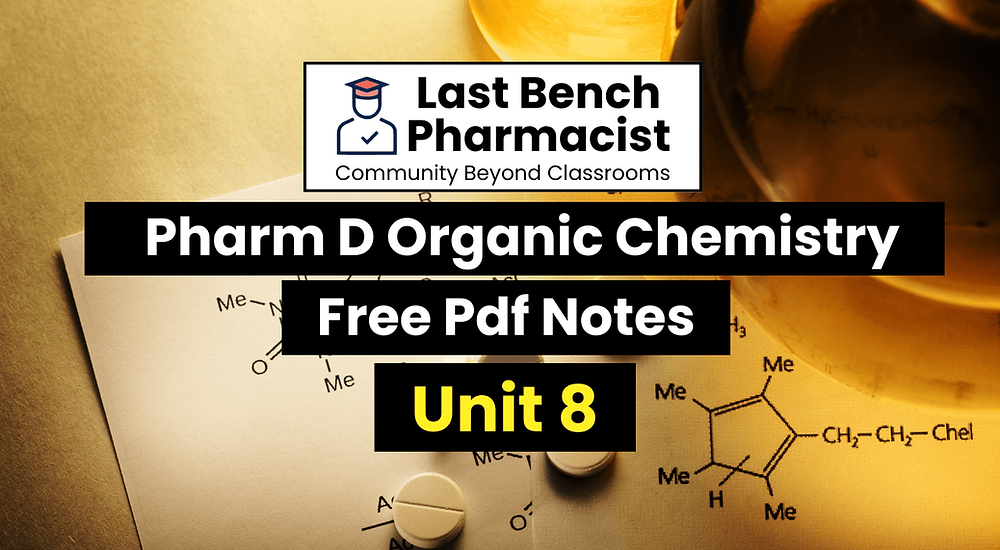



#pharmdnotes #pharmd1styearnotes #pharmdorganicchemistrynotes
Pharm D Organic Chemistry Unit 8 PDF Notes takes us on a thrilling adventure into the realm of free radical halogenation of alkenes, pharmacy students! Brace yourselves as we explore how these fascinating molecules with double bonds can react with halogens (like chlorine or bromine) through a free radical mechanism. We’ll delve into the key differences between free radical substitution and addition reactions, and unlock the secrets of how free radicals can substitute a hydrogen atom on an alkene with a halogen atom. Get ready to conquer the concepts of orientation and reactivity, understanding which positions on the alkene are most susceptible to halogenation. We’ll also encounter the intriguing phenomenon of allylic rearrangements, where the carbon skeleton of the molecule can rearrange during the reaction, leading to unexpected but predictable products. So, sharpen your pencils, pharmacy students, and prepare to master the art of manipulating alkenes through free radical halogenation in Pharm D Organic chemistry PDF Notes.
Carbon-carbon double bond as substituents: Free radical halogenations of alkenes, comparison of free radical substitution with free radical addition, free radical substitution in alkenes, orientation and reactivity, allylic rearrangements.